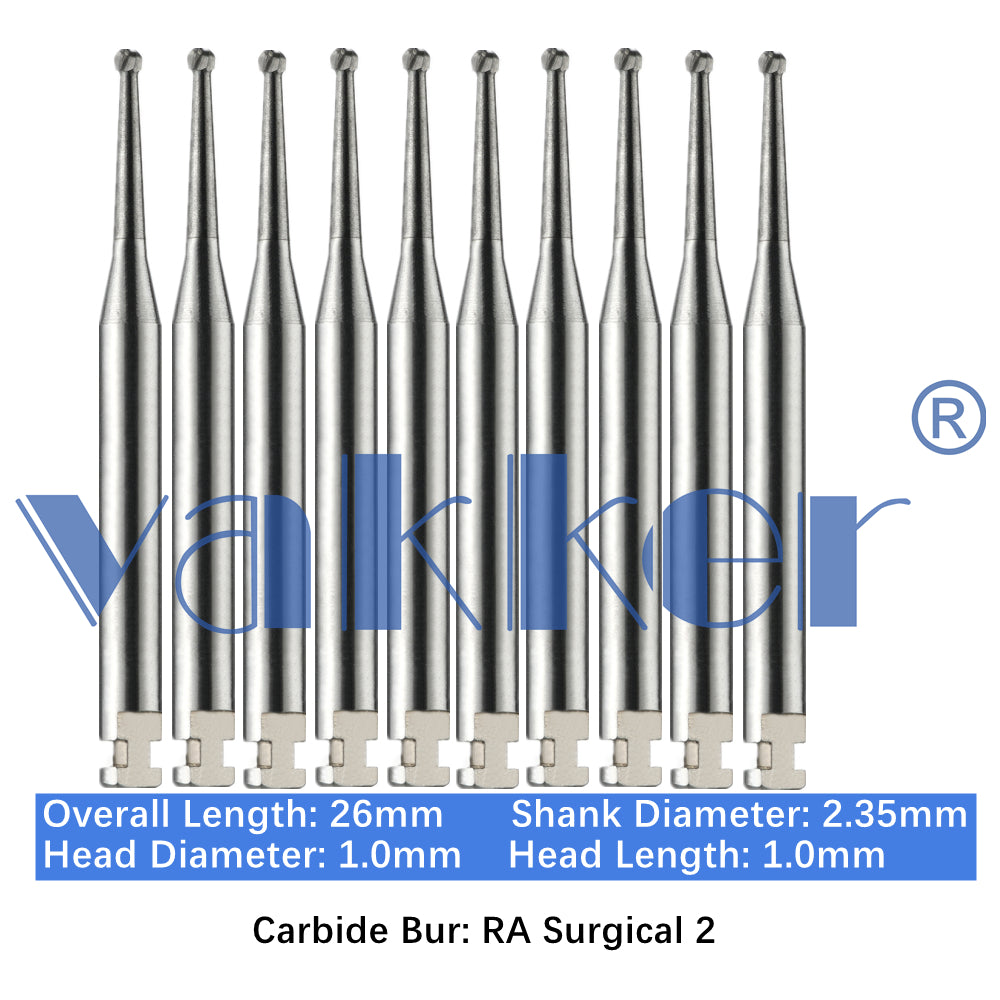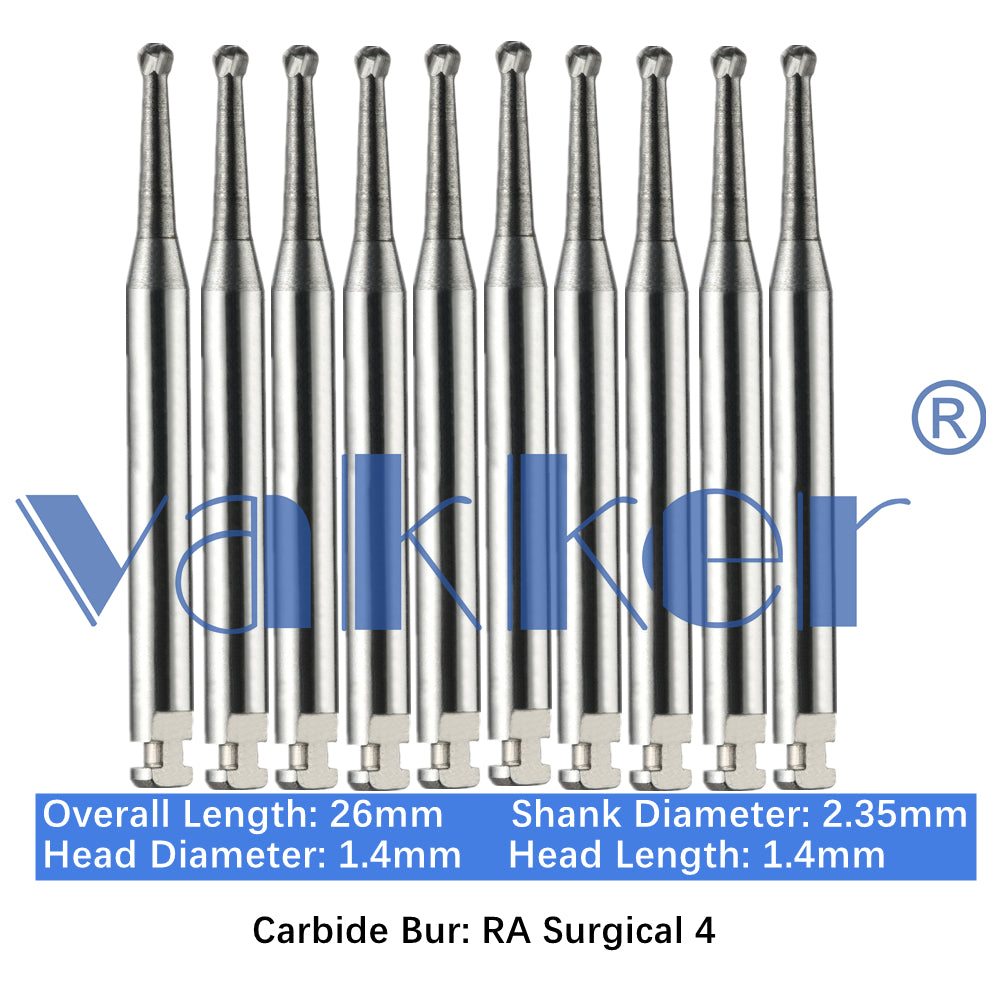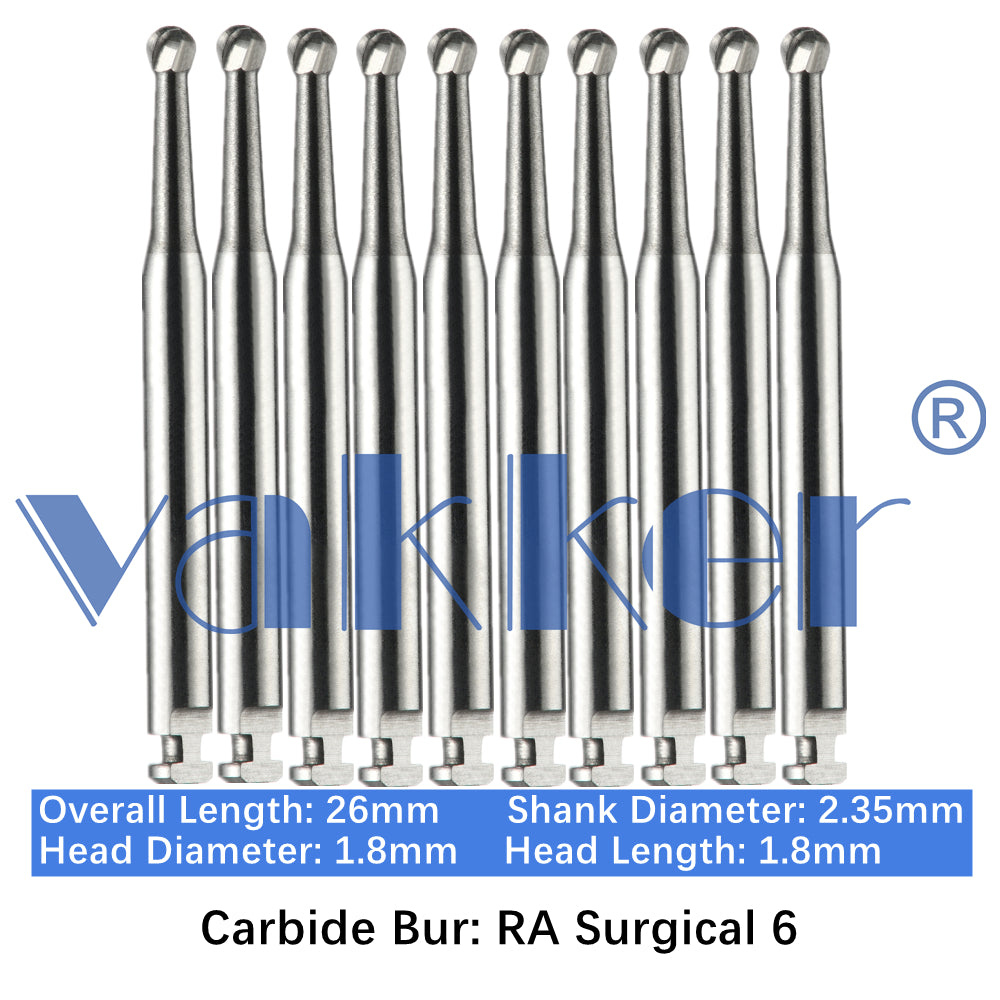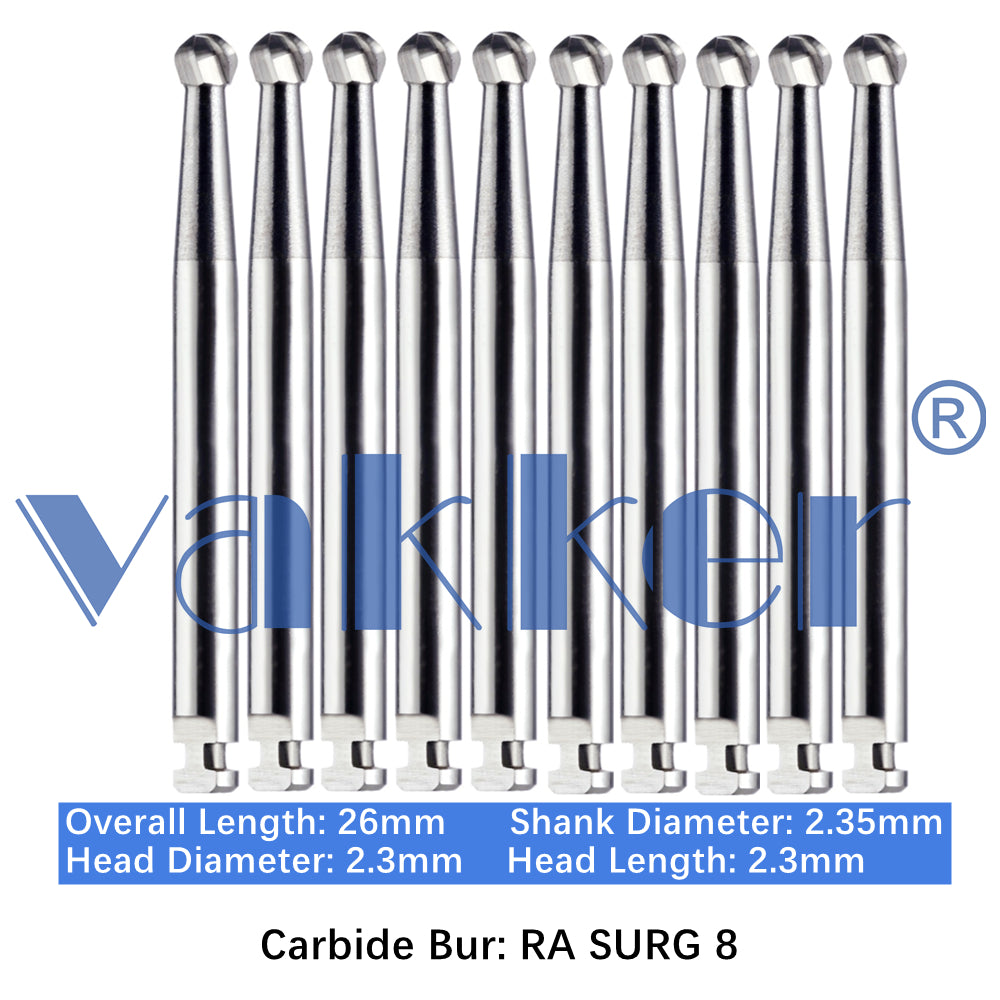Description
FG: Friction Grip SS: Short Shank
Surg: Surgical Length RA: Right Angle (Latch-Type)
OPERATIVE CARBIDE BURS
Round: For caries excavation, cavity preparation, and root canal access. Smaller sizes often used for single surface cavities, medium sizes often used for interproximal cavities in anterior teeth.
Inverted Cone: For producing undercuts in cavity preparations; slightly rounded edges on the blade corners reduce chipping for a smoother cut. Ideal for amalgam removal; may also be used to contour the occlusal anatomy of final restorations and for flattening pulpal and gingival walls.
Flat Fissure Plain Cut/Flat Fissure Cross Cut: For producing preparations with straight parallel sides and flat floors, gaining access to carious dentin, establishing preparation form, and creating retentive locks. Cross cut burs have more cutting edges.
Pear: For contouring the occlusal anatomy, preparing cavities, and removing amalgam. Produces an undercut preparation with round internal line angles.
Taper Fissure Plain Cut/Taper Fissure Cross Cut: For producing a preparation with tapered, divergent walls and a flat floor. Also used for inlay/onlay preparation and to section teeth and cut bone. Cross cut burs have more cutting edges.
Domed Fissure Plain Cut/Domed Fissure Cross Cut: For producing a preparation with straight, parallel, or minimally divergent walls with round internal line angles. Also used to gain access to carious dentin, establish preparation form, and create retentive locks. Cross cut burs have more cutting edges.
Domed Taper Fissure Plain Cut/Domed Taper Fissure Cross Cut: Used to create preparations with tapered, divergent walls and round internal line angles, to section teeth and cut bone, and to quickly shape primary anatomy in restorative material. Cross cut burs have more cutting edges.
End Cutting: Used to produce a flat preparation floor, refine preparations, and to mark the depth of bone reduction in crown lengthening. Help reduce any possibility of impacting the surface of the adjacent tooth with the cutting surface of a bur.
SPECIALTY CARBIDE BURS
Orthodontic Burs: Ideal for adhesive removal. Also Popular for Use In Orthodontics.
Metal Cutting: Provide maximum cutting efficiency.
Lindemann Burs: Has four blades for aggressive cutting of hard tissue or bone structure.
Surgical Bur 151: Has six spiral blades for removal of debris, sectioning an impacted wisdom tooth before extraction, separating roots, and removal of a broken root stump.
TRIMMING & FINISHING CARBIDE BURS
Twelve bladed finishing burs (7000 series) provide a smooth finish on composite, amalgam, enamel, dentin, ortho debonding, and other dental materials. Best for controlled contouring and finishing.
Thirty bladed finishing burs (9000 series) will eliminate most surface striations and, because the thirty blades remove less material per revolution, are recommended for use before abrasive polishing. Designed to reduce the “shiny dull” phenomenon and save additional polishing time. Best for final surface refinement, satin polishing, and use on ceramics because they produce a less aggressive cut.




